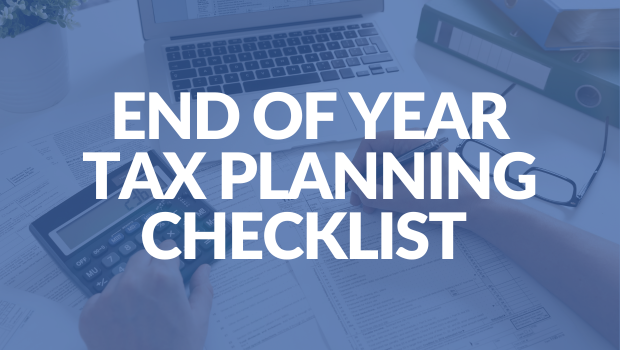It’s the holiday season, which means 2025 is just around the corner. Even though you might be focused on spending time with family and friends and ending your work year on a high note, don’t forget that now’s the time to make certain financial decisions. This is particularly true when it comes to taxes. The following is an overview of things you might want to do or think about before the end of 2024.
Item #1: Check Your Flexible Spending Account
If you have a Flexible Spending Account (FSA), and it’s like most others, then the money in the account must be used up by the end of the calendar year. If it’s not, then the money in the account could be lost forever. So, before January, check your FSA to confirm if it’s a “use-it-or-lose-it” type of account. If it is, see if there are healthcare costs you can pay for with FSA funds. If not, you can check to see if your employer provides an option to minimize a loss of funds. While not required, an employer who offers an FSA to its employees may allow employees to either:
- Provide up to an extra 2.5 months in the following year for the employee to use the FSA funds, or
- Allow the employee to carry over up to $660 of the FSA’s funds into the following year.
If your FSA allows for either of these options, they can give you extra time (or money) to pay your medical costs.
Item #2: Check Your Tax Deductions
If you’re like most individual taxpayers, you probably take the standard deduction. However, if you’re on the fence about whether to itemize or take the standard deduction, now’s the time to check your likely tax deductions for 2024. One of the things you’ll be looking for is to see if there are any deductions you missed, as well as whether you still have room to increase these deductions before the end of the year.
For instance, assume you want to itemize your deductions. Also, imagine you’ve made eligible charitable cash contributions that amount to 50% of your adjusted gross income (AGI) and the 60% AGI limit applies to you. In this case, you can consider making one or two final cash donations to take full advantage of this itemized deduction.
Item #3: Take Advantage of Your Losses with Tax-Loss Harvesting
If you’ve invested this year, then you probably have both some capital gains and some capital losses. If in line with your overall investing strategy, consider selling some of your losing investments to “lock in” the losses. Then you can use those losses to offset some, or all, of your capital gains. If you have losses left over, you can use some of those losses to offset ordinary income.
Before making use of tax-loss harvesting, be aware of two key things. First, don’t let the desire to save on taxes persuade you to make a poor investment decision. The last thing you want to do is sell a losing stock that was about to rise and become a profitable investment. Second, be aware of the wash sale rule. If you quickly buy back the investment in 2025 after selling it in 2024, the IRS may disallow you from using the capital losses to offset the capital gains.
Item #4: Maximize Your Tax-Advantaged Retirement Contributions to Your 401(k)
If you have a 401(k), see if you’ve made full use of the tax-advantage benefits it offers. You may not have because you simply didn’t have the funds to maximize your contributions. But, if you have extra money sitting around and haven’t hit your 2024 contribution limits, think about making an additional contribution in December. In case you’re wondering, you have until April 15, 2025 to make contributions to your IRA for the 2024 tax year.
Item #5: Consider Consulting with a Tax Planning Professional
Taxes are complicated, so it’s understandable if you don’t fully comprehend what financial decisions are best for you and your taxes. Because of this, consider contacting a tax-planning professional to discuss your available options. They can examine your tax situation and see if you’re missing something (you don’t know what you don’t know) and also help you avoid future tax problems and disputes with the IRS or CA FTB.
Kienitz Tax Law is here to help you with your tax issues. Schedule your FREE consultation today!

